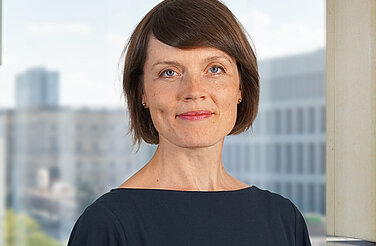Western Balkan countries can decarbonise their power systems by 2045 – and save money
Western Balkan countries can phase out coal by 2040 and achieve a carbon-free power system by 2045 if they invest in renewable energy, energy storage and green hydrogen, a new study led by Agora Energiewende finds.
Brussels, 18 October 2022. Through investments in renewable energies, green hydrogen-ready infrastructure and storage technologies, Western Balkan countries can reduce fossil gas demand by 50 percent by 2045 and cut overall costs by 12 percent compared to a strategy that relies on new fossil gas infrastructure to replace aging lignite plants, a new study by think tank Agora Energiewende shows.
The urgent need for accelerated climate action together with high and volatile fossil gas prices and ever cheaper renewables undermine the business case for new gas developments.
“Our study finds that transitioning to clean energy will cost the region 15 percent less than replacing aging lignite power plants with new coal or fossil gas. A smart transition in the Western Balkans region builds on a mix of renewables, energy storage and green hydrogen to minimise costs and maximise energy security, while entering a path towards climate neutrality by 2050,” said Matthias Buck, Europe Director of Agora Energiewende. “Renewables are the best option in the power sector to limit global warming to 1.5°C and to chart a sustainable way out of the fossil energy crisis.”
Storage technologies will help to rapidly scale solar PV
Targeted investments into energy storage capacity will enable rapid growth in solar PV, the most easily scalable renewables technology. Storage also lowers the need for hydrogen power plants to replace fossil gas infrastructure.
“The need for hydrogen must not be overestimated when planning for the power sector infrastructure”, cautioned Buck. “For Western Balkan countries, 5 gigawatt worth of green hydrogen plants, covering 7 percent of demand in 2045, is needed to ensure security of supply.”
As members of the Energy Community – an organisation comprising the EU and its neighbours – Western Balkan countries are expected to prepare draft National Energy and Climate Plans (NECPs) by June 2023 to show how they plan to transform their power systems in this decade, having in mind their set target of reaching climate neutrality by 2050.
The study entitled „Powering the Future of the Western Balkans with Renewables“ compares three different scenarios: the “baseline” scenario or a continuation of current national plans and policies, the “gas lock-in” scenario where the decarbonisation relies on fossil gas, and the “smart transition” scenario where fossil gas is replaced with energy storage and green hydrogen to the greatest possible extent.
The study was written by Agora Energiewende in cooperation with enervis energy advisors, RESET from Bosnia and Herzegovina, INDEP from Kosovo and ASOR from Serbia. It covers Albania, Bosnia and Herzegovina, Kosovo, Montenegro, North Macedonia and Serbia. Albania already has a decarbonised power sector but is included in the modelling to accurately reflect power system dynamics in interconnected systems with cross-border exchange of electricity. The publication is available for free download below.




